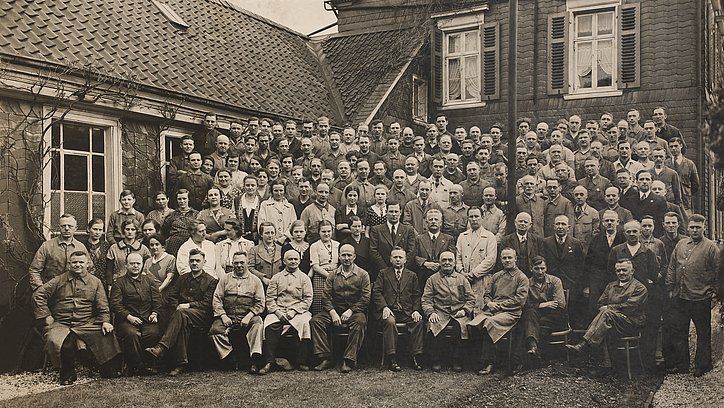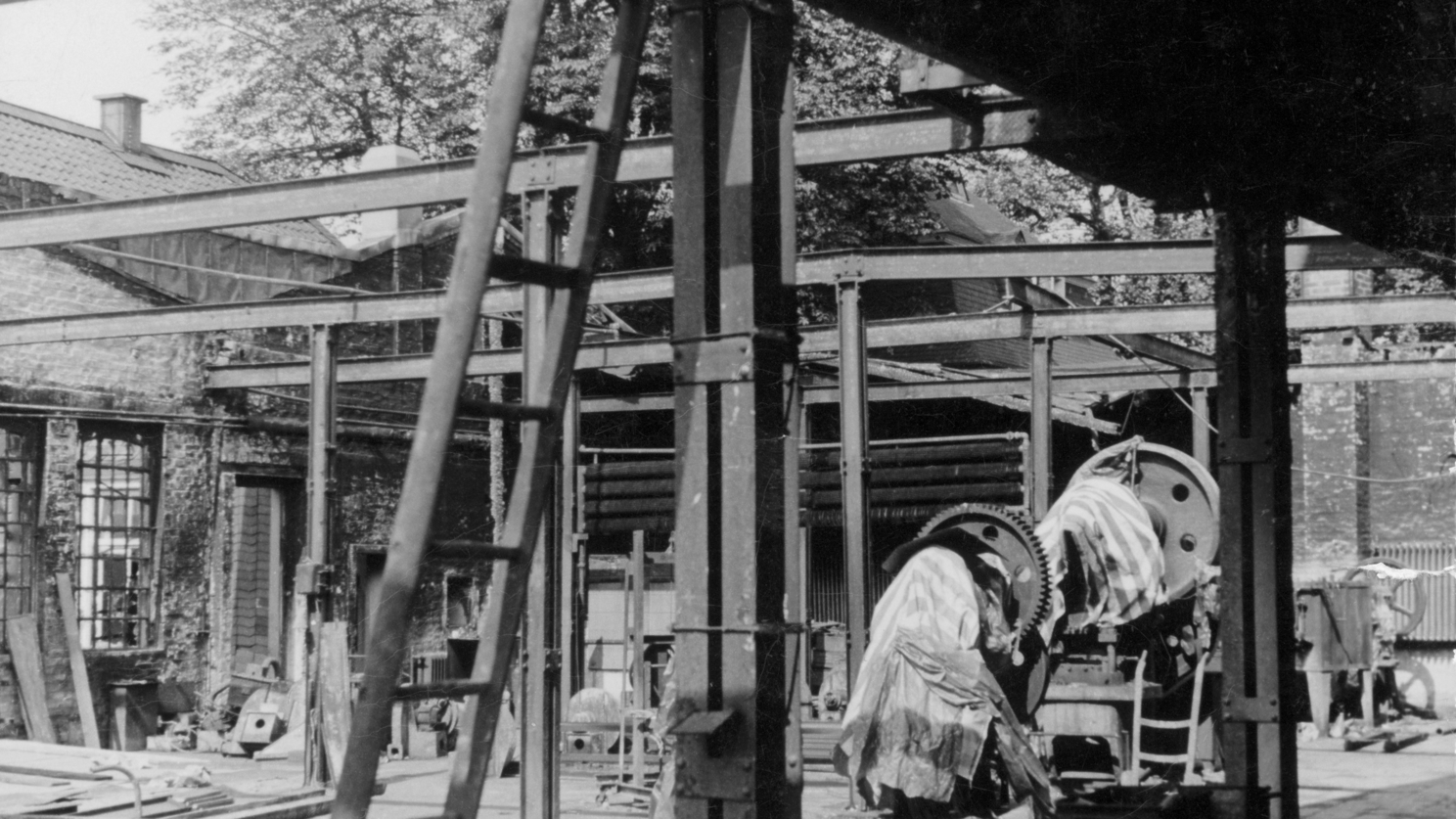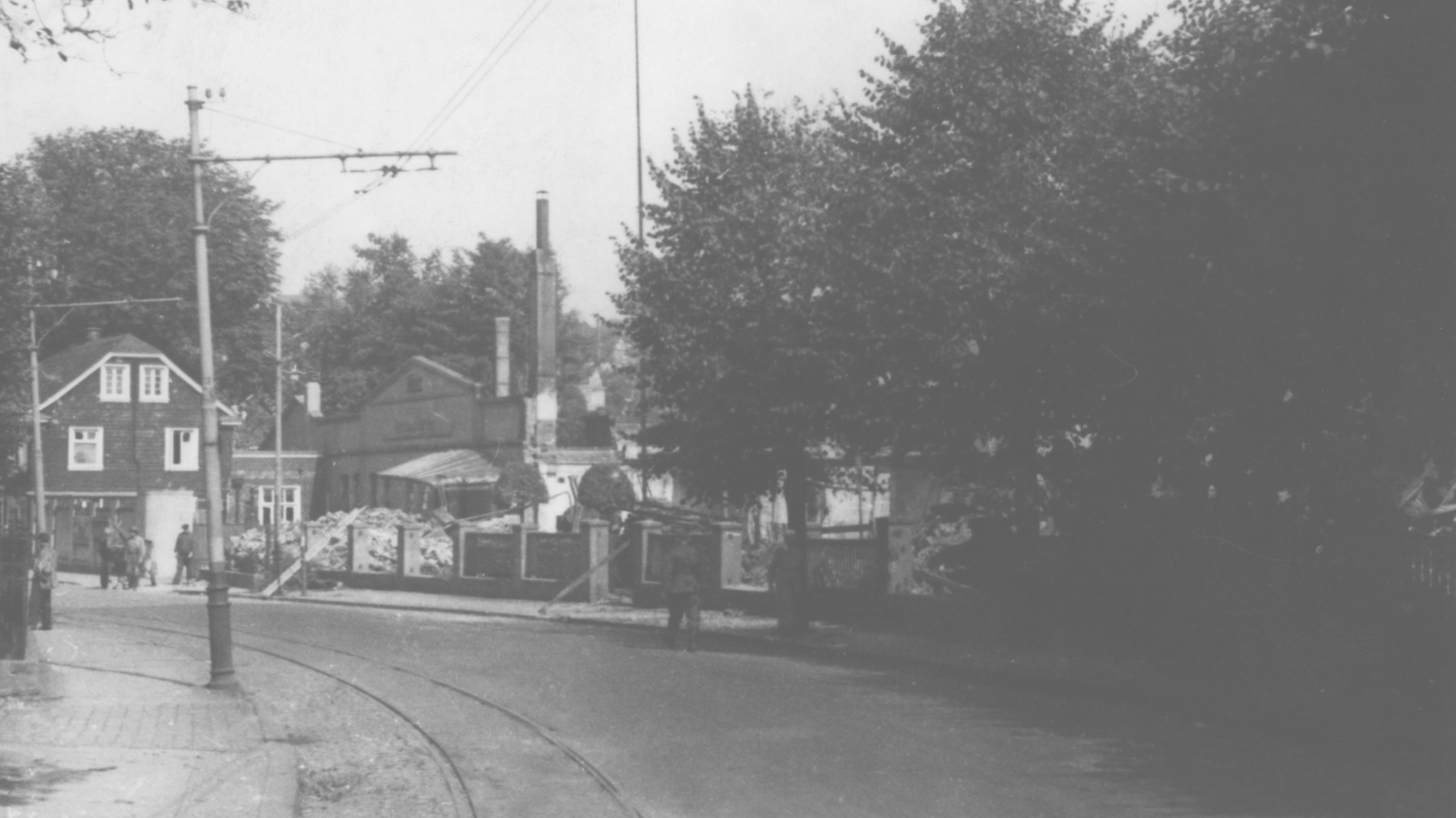At the end of July 1943, Remscheid is hit in an Allied bomb attack and badly damaged. The main HAZET plant is almost completely destroyed by firebombs.
Despite this, many machines can continue to be used, since only the electric motors need to be replaced. They manage to get materials to repair the machines. Nevertheless, production is partly outsourced to Schmalkalden, Thuringia, as the new building in Güldenwerth is not yet ready.

One year later, production continues in Remscheid, initially still partly under the open sky (wrenches were considered essential war goods). After the demolition, the main factory in Vieringhausen is provisionally rebuilt from the rubble bricks.
In 1947, the Güldenwerth plant is slowly but steadily completed and the old business relationships, especially abroad, are resumed. The reputation for quality and product diversity of HAZET tools survived the war unscathed.
The actual reconstruction of the business is only possible after the currency reform in June 1948. At that time, around 100 men and women were working at HAZET. Manfred Burckhard begins his apprenticeship at HAZET (he is granted power of attorney in 1966, procuration in 1974 and becomes a commercial member of the management as a non-family member in 1991)


